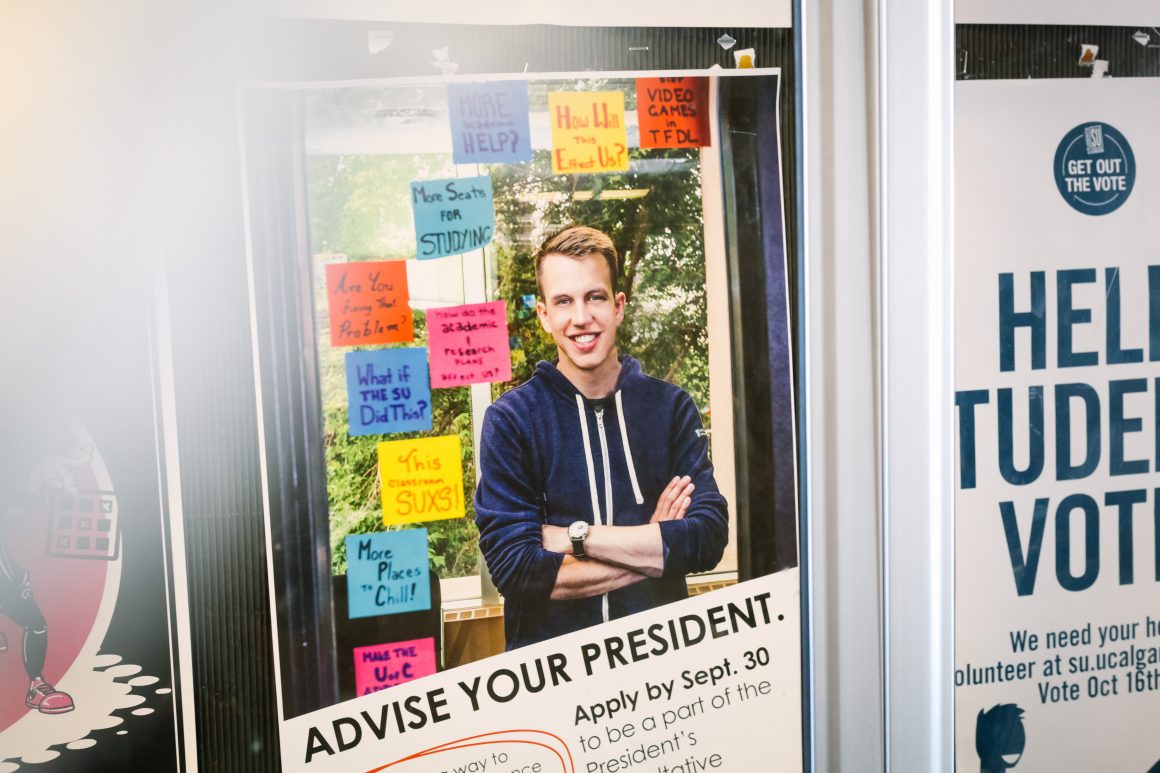
The President’s Consultative Task Force doesn’t reach alienated students
By Jesse Stilwell, October 2, 2017 —
It‘s an understatement to say that most University of Calgary students are not very engaged with their student government. The gallery is usually small at Students’ Legislative Council and most students’ engagement with the Students’ Union begins and ends at Bermuda Shorts Day every year. Dealing with this alienation has been a significant challenge for the SU.
SU president Branden Cave’s new President’s Consultative Task Force is a well-intentioned program that could improve students’ connection with the SU. It was a thoughtful platform point in Cave’s campaign last March that gave students confidence in his promise to stop the “bullshit” that he purported students were dealing with. Instead of relying on students to engage with the SU on their own, the SU would finally come to them.
I hoped this would mean Cave and other SU officials would reach out to smaller clubs or directly to students who have not previously been engaged by the SU. Unfortunately, this is largely not the case.
Of the 20 seats at the PCTF table, 10 will go to students in stakeholder groups such as the Dinos, the Women’s Resource Centre and the Leadership and Engagement Office. There will also be students-at-large at the table who can be members of these organizations as well. The members from these stakeholder groups are supposed to act as a subset of the student population as a whole.
It is impossible for a small sample of students to represent the vast diversity that exists within the U of C student population. There are differing needs and perspectives within departments, clubs and even social circles, not too mention the marginalized populations at the U of C. A comprehensive representation of the student body should not have been the aim of the PCTF’s recruitment. The goal should have been engaging with students who feel alienated from the SU.
All of the stakeholder groups on the PCTF have a long history of working with the SU, so they shouldn’t have deep–seated feelings of alienation. For example, a few of these stakeholder group members will come from the Scholar’s Academy, who have five members on SLC already. Scholars Academy program assistant Caillie Mutterback said they already feel well connected to the SU. “We have a fairly good working relationship,” she said. While they may want to be included, they aren’t the most effective group to include to achieve the PCTF’s aims. It leaves the students who don’t already feel connected to the SU with less opportunities to engage.
Over 200 student clubs were showcased at Clubs Week. Most of them are small clubs that serve a small group of students who are usually not engaged with the SU beyond their clubs. These are the people the SU president should consult with if he wants to connect with disengaged students. The students who are already engaged on campus in different offices do not need yet another avenue to their representatives.
Another way to improve recruitment would be giving these stakeholders less seats while leaving more open for students-at-large who are not already members of a stakeholder group. The seats reserved for the engaged stakeholders would allow them to set an example, get the other members up to speed on how the SU works and define what feedback is valuable or not. This would include more alienated students while still including stakeholders.
The PCTF has a lot of potential to improve the U of C and any new program will have some flaws in its first year. I hope in the next few years the configuration of the PCTF becomes more in line with its intended purpose.
